From lattes to smoothies to protein drinks, matcha powder is everywhere. Made from fresh Japanese green tea leaves, matcha powder has a distinct bright green color, fresh aroma, and slightly sweet grassy flavor. (1) It’s these unique qualities that set matcha powder apart from other teas and contribute to its nutritional profile, including higher levels of amino acids, chlorophyll, and L-theanine. (1) Though you can find matcha powder at the grocery store or online, not all powders are the same, varying in taste, color, quality, and use.
To help you find the best matcha powder, our team of experts evaluated dozens of products, looking at several key factors like quality, origin, added ingredients, effectiveness, and price to narrow down our list. Read on to find our choices for the best matcha powders to buy.
Editor’s choice: Ka’Chava Matcha All-In-One Nutrition Shake
As a non-traditional approach, Ka’Chava Matcha stands out with its all-in-one, matcha-flavored shake mix. Ka’Chava’s nutrition shake uses organic green tea leaves for the unique flavor of matcha and its potential health benefits, along with plant proteins, antioxidants, digestive enzymes, probiotics, adaptogens, and a super greens blend. The shake is vegan, gluten-free, soy-free, and contains no artificial ingredients, for a nutritious and filling matcha smoothie.
Medical disclaimer: This article is intended for educational and informational purposes only. It is not intended as a substitute for medical advice. For health advice, contact a licensed healthcare provider.
Our picks for the best matcha powder
- Best for smoothies: Ka’Chava Matcha All-In-One Nutrition Shake
- Best for weight loss: Sports Research Collagen Peptides Powder with Organic Matcha
- Best for skin health: Naked Nutrition Matcha Latte Collagen Peptides
- Best organic: Cymbiotika Organic Matcha Powder
- Best Japanese: Ippodo Ummon Matcha
- Best for lattes: Chamberlain Coffee Matcha
- Best mushroom: Renude Chaga Matcha
- Best sweetened: Jade Leaf Cafe Style Sweetened Matcha Latte Powder
- Best tasting: Kettl Matcha
Compare best matcha powders
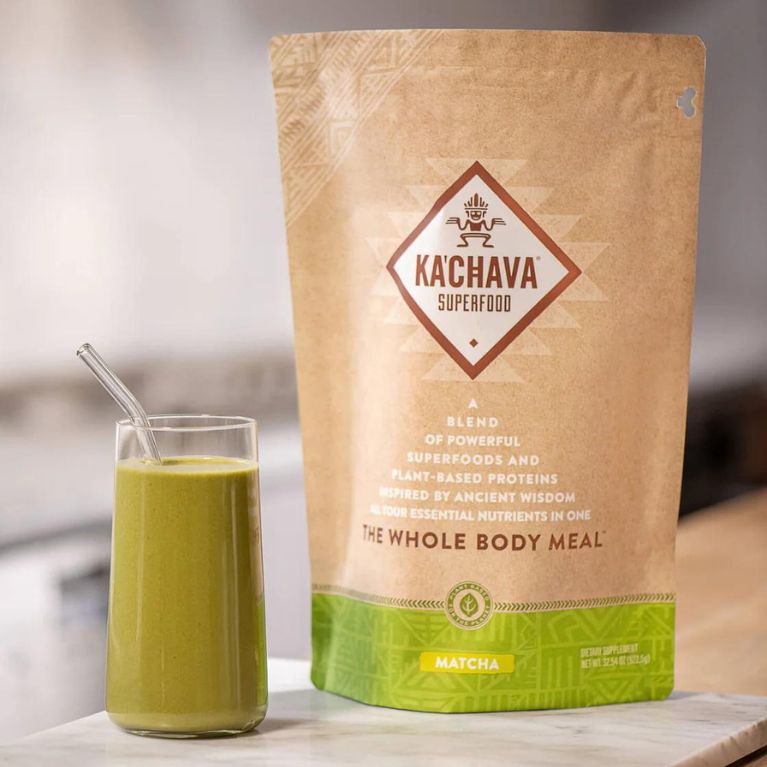
|
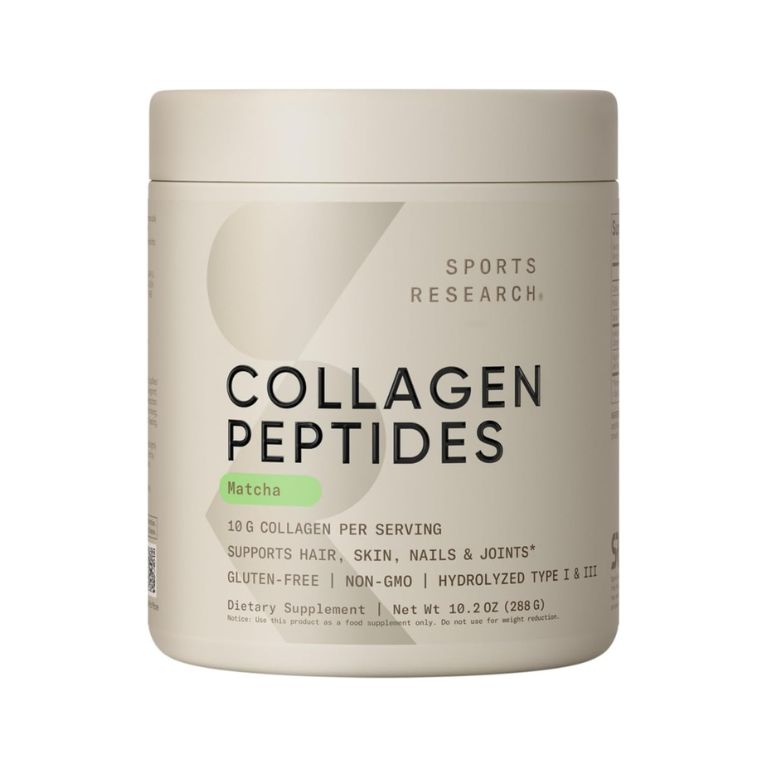
|
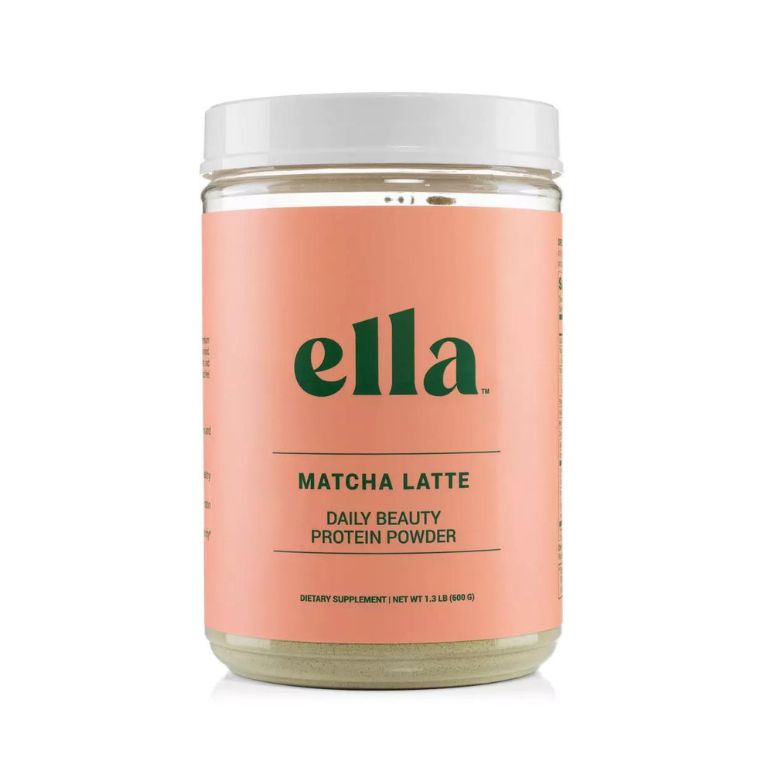
|
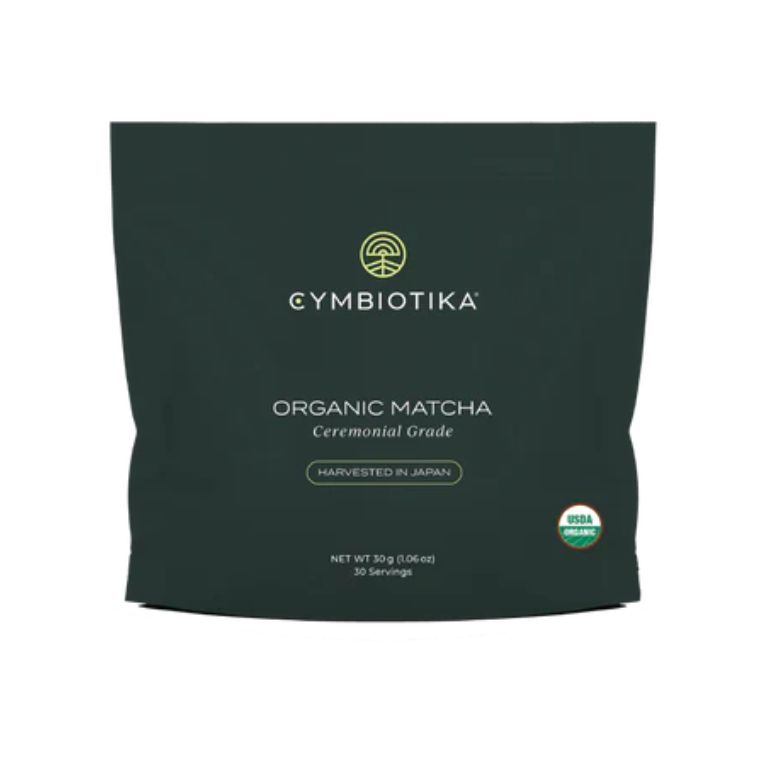
|
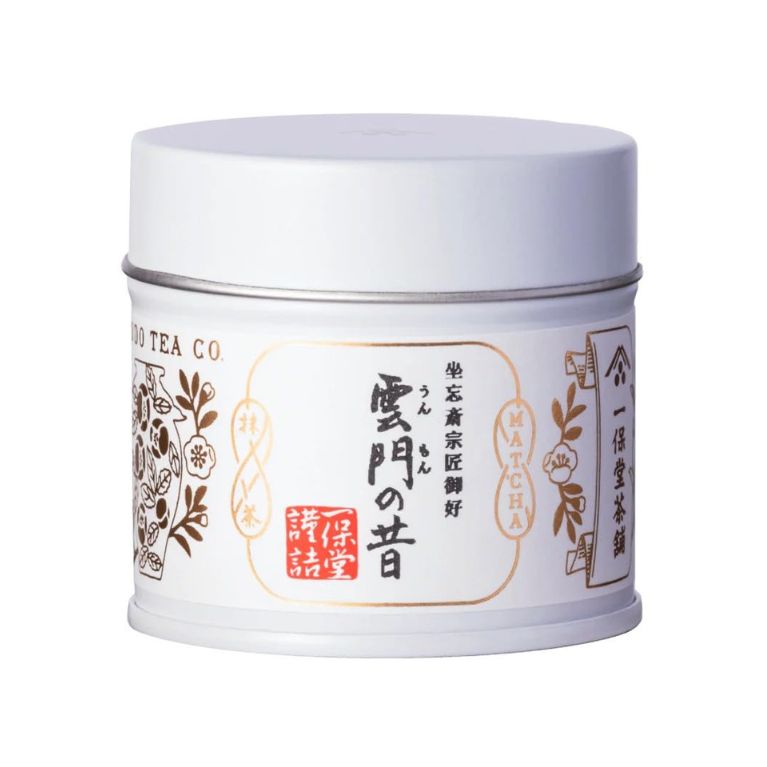
|
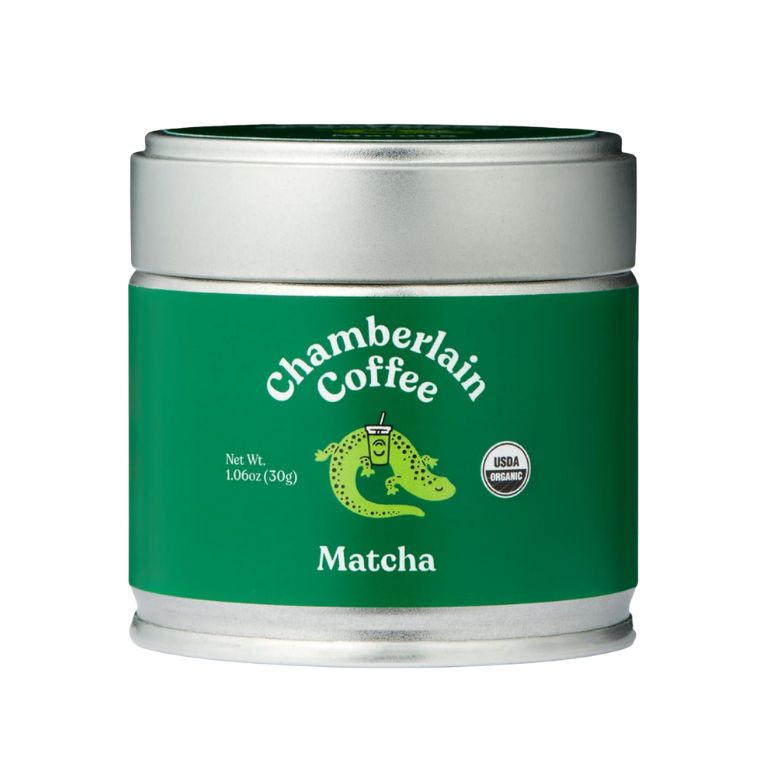
|
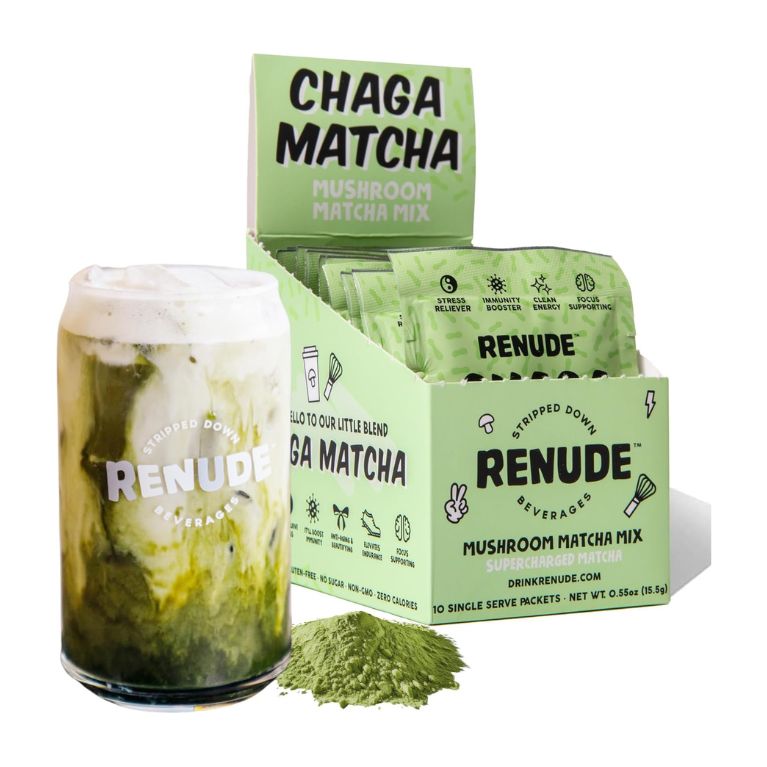
|
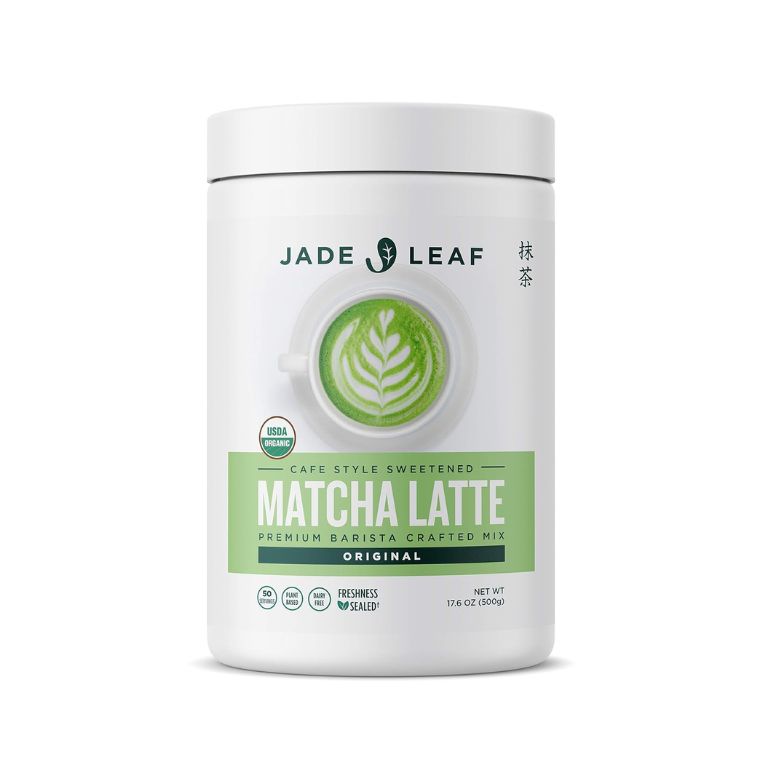
|
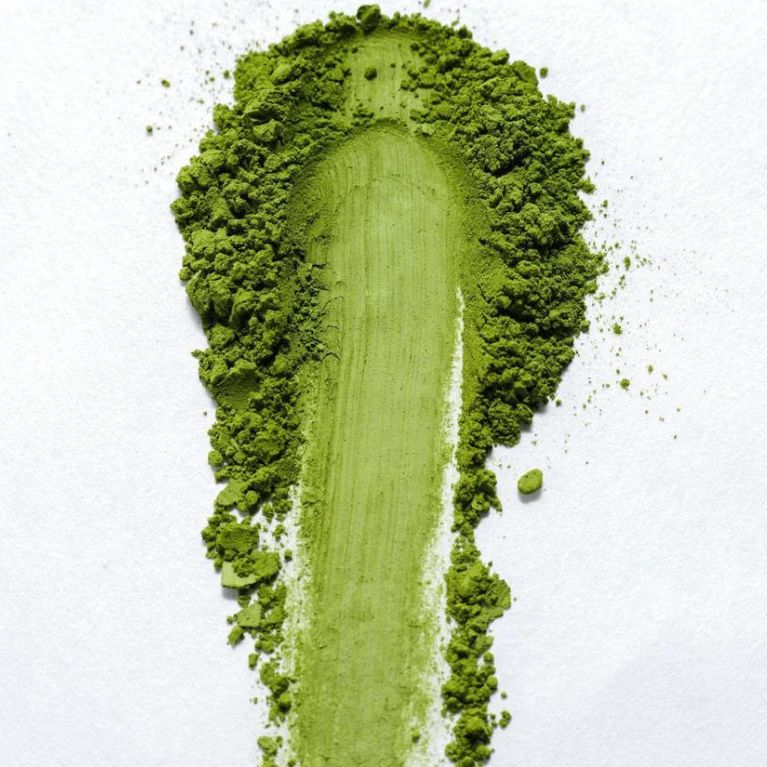
|
|
| Ka’Chava Matcha All-In-One Nutrition Shake | Sports Research Collagen Peptides Powder with Organic Matcha | Naked Nutrition Matcha Latte Collagen Peptides | Cymbiotika Organic Matcha Powder | Ippodo Ummon Matcha | Chamberlain Coffee Matcha | Renude Chaga Matcha | Jade Leaf Cafe Style Sweetened Matcha Latte Powder | Kettl Matcha | |
| Rating | |||||||||
| Cost per serving | $4.66 | $1.29 | $2.00 | $1.47 | $2.88 | $0.80 | $3.50 | $0.60 | $1.05-$3.25 |
| Grade | N/A | Ceremonial | N/A | Ceremonial | Premium | Ceremonial | Ceremonial | Premium | N/A |
| Origin | N/A | N/A | N/A | Uji and Kagoshima, Japan | Kyoto, Japan | Shizuoka, Japan | Fukuoka, Japan | Kagoshima and Uji, Japan | Uji, Yame, Fukuoka, Gokohso, and Kyoto, Japan |
Best matcha powder for smoothies: Ka’Chava Matcha All-In-One Nutrition Shake
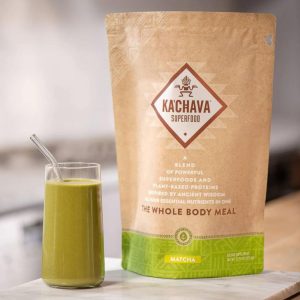

Key product features
What you should know
Ka’Chava’s Matcha All-In-One Superblend Shake brings together plant-based proteins, fiber, and vital nutrients. They also add organic green tea leaf to this matcha flavored shake, providing the distinct taste and color you look for in a matcha powder.
- Ka’Chava’s matcha-flavored shake is an excellent source of many essential nutrients, meeting 18% of the daily value for fiber 25% of the daily value for vitamin D, and more than 30% of the daily value for vitamin A, vitamin B12, iron, calcium, and zinc, to name a few.
- The all-in-one shake is priced well-above the average market price for matcha powder at $4.66 per serving, but provides more nutrition than a traditional Japanese green tea powder.
- Matcha-drinking vegans looking for a nutrient-packed smoothie that can help them get more protein, vitamin B12, and iron may want to give Ka’Chava Matcha All-In-One Nutrition Shake a try.
- Ka’Chava uses proprietary blends, making it difficult to determine exactly how much green tea leaf is in the supplement.
Why we like Ka’Chava Matcha All-In-One Nutrition Shake as best for smoothies
Ka’Chava Matcha All-In-One Nutrition Shake turns your usual matcha smoothie into a nutrient-packed meal. It’s a plant-based meal replacement shake that uses whole food ingredients to provide the nutrition you need, using organic green tea leaf for the matcha flavor and color.
Matcha powder is a type of Japanese green tea made from fresh green tea leaves picked and processed following a shading treatment. (2) In traditional Japanese tea making, green tea plants (Camellia sinensis) spend most of the growing period covered in bamboo mats, shielding the teas from direct sunlight. (1) This growing method produces a plant with higher levels of amino acids, chlorophyll, and L-theanine, which are responsible for the rich hue and fresh flavor of matcha. (1) This unique flavor has made matcha popular in not just tea, but lattes and smoothies as well.
One serving of Ka’Chava provides 240 calories, 25 grams of protein, 22 grams of carbs, 5 grams of fiber, and 8 grams of fat. It’s also an excellent source of vitamins and minerals, meeting 25% or more of the daily value for vitamins A, C, D, E, and B12, as well as calcium, iron, and zinc, to name a few.
Ka’Chava makes a great, nutrient-packed smoothie for people following a vegan diet. The shake uses multiple plant sources of protein, including pea and brown rice, so it provides all the essential amino acids. (3) It’s also a good source of key nutrients that are more challenging to get on a vegan diet, like vitamin B12, vitamin D, calcium, and iron. (4)
Ka’Chava nutrition shakes come in many flavors, including matcha. One of the drawbacks of the nutrition shake is its use of proprietary blends, a type of “secret” recipe that’s commonly used by supplement makers and only lists the ingredients, but not the amounts, making it impossible to evaluate efficacy or safety. (5) However, the shake is third-party tested for quality and manufactured in a certified Good Manufacturing Practices (cGMP) facility. Ka’Chava is also Therapeutic Goods Administration (TGA) certified, Australia’s government authority that evaluates, assesses, and monitors therapeutic goods.
Green tea is one of 85 ingredients in Ka’Chava’s matcha shake, and it’s not clear how much matcha you get. They also don’t list the origin of the green tea leaf, making it impossible to assess the quality of the matcha powder. (6)
Ka’Chava is also pricey for a matcha powder at $4.66 per serving. Though, you may consider it a good value if it replaces your usual matcha powder and a meal, but again, if you’re hoping to add matcha to your diet for some of the potential health benefits, you can’t be certain of the quantity within this product, given that it’s hidden in the “proprietary blend.” (1) Ka’Chava has a subscription program, saving you $10 on each bag with monthly shipments.
You may get the flavor you want with Ka’Chava’s matcha shake and its convenience as a smoothie mix, but it may not come with any of the other benefits you expect from a matcha powder. It also won’t work as a traditional matcha for tea or lattes.
What customers are saying
More than 9,000 Amazon customers have reviewed Ka’Chava All-In-One Nutrition Shake. They like the shake’s ingredients, nutrition, and convenience. However, some find the shake pricey.
“This is a great-tasting, healthy source of nutrition. I make up several day’s worth of the product at a time and put it in the refrigerator. The result is a smooth, delicious liquid that can stand on its own as a quick, easy meal.”
James, Amazon
Samantha is another Amazon customer who likes the shake, but not the price. “I really like the flavor and it is good for my digestion. I don’t give 5 stars because of the price.”
Specs
| Serving size | 2 scoops (61.5 grams) |
| Servings per container | 15 |
| Price per serving | $4.66 |
| Grade | N/A |
| Origin | N/A |
| Ingredients | Green tea leaf, moringa, beet, carrot, spinach, pea protein, brown rice protein, whole grain oats, flax seed, chia seed, coconut nectar, maca root, shiitake mushroom, inulin, Lactobacillus rhamnosus, Lactobacillus acidophilus, digestive enzymes, and more |
| Certifications | USDA certified organic, cGMP certified, TGA certified |
Best matcha powder for weight loss: Sports Research Collagen Peptides Powder with Organic Matcha
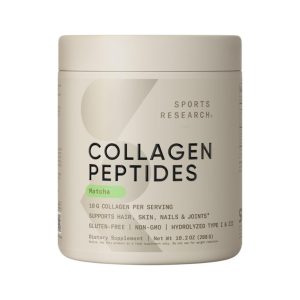

Key product features
What you should know
Sports Research levels up their collagen peptides powder with this supplement, providing amino acids and protein from collagen peptides, and caffeine, L-theanine, and catechin from matcha powder. Though in the early stages of research, the nutrients found in collagen peptides and matcha powder may support weight loss when part of a comprehensive weight management plan. (7, 8)
- Sports Research Premium Collagen Peptides Powder and Organic Matcha Green Tea provides 9 grams of protein and 60 milligrams of caffeine, helping to keep you satiated and energized. (9)
- At $1.29 per serving, Sports Research Collagen Peptides with matcha is priced a little higher than the average market price for matcha powder, but as a two-in-one supplement is a good value if it replaces other items you buy individually.
- This is a great matcha powder for people looking for an alternative morning beverage that boosts energy and packs in a little protein to get the day started.
- Sports Research’s collagen peptides supplement isn’t a complete protein, providing only 18 amino acids.
Why we like Sports Research Premium Collagen Peptides Powder and Organic Matcha as best for weight loss
Sports Research Premium Collagen Peptides Powder with Organic Matcha isn’t marketed for weight loss, but contains elements that some research suggests may support your weight loss efforts. (9) It has only 40 calories per serving, supplying 9 grams of protein, 60 milligrams of caffeine, and is a source of catechins.
When following a balanced diet for a weight loss program, you need to take into consideration calories from supplements like Sports Research Collagen Peptides. Calories from any source may lead to weight gain if they go beyond your daily calorie needs for your weight goal. (10)
Several research studies show that eating a higher protein diet supports weight loss by suppressing appetite, increasing energy expenditure, and maintaining muscle while reducing body fat. (11) The collagen peptides and matcha supplement from Sports Research aren’t a complete protein source, meaning it doesn’t supply all the essential amino acids, but it can help meet needs. (12)
Further, there’s some evidence that collagen supplements may benefit body composition. A small clinical study that included 74 participants found that supplementing with collagen reduced body fat when combined with regular exercise. (7) Though promising, more research is needed.
The caffeine and catechins from the matcha powder may also support efforts towards a healthy weight. Research has shown improvements in weight loss in people taking green tea supplements, and it’s theorized that it’s related to the caffeine and catechins in the tea. (8) Though there are no human studies linking matcha powder to weight loss, it has three times more catechins and nearly double the amount of caffeine than green tea. (1, 13)
“No dietary supplement has been shown to be the magic bullet that so many are hoping for,” adds Chris Mohr, PhD, RD. “It really comes back to the overall quality and quantity of your intake, the balance around exercise and movement each day along with other lifestyle factors.”
Matcha powder does provide L-theanine, an amino acid that may influence mood, improves sleep, and mellows out the stimulating effects of caffeine. (13)
Sports Research Premium Collagen Peptides Powder with Organic Matcha won’t directly lead to significant changes in weight if you currently take collagen peptides and want to add matcha tea to your routine, this Sports Research supplement is something to consider.
We also like the matcha powder because it has two ingredients, hydrolyzed bovine collagen peptides and organic matcha green tea leaf powder, making it a good value at $1.29 per serving. Though it costs a little higher than the average price for matcha powder, you may save money if it serves as both your collagen supplement and matcha drink.
Sports Research says the matcha used is “ceremonial-grade” though there’s no standard for what that actually means and this one fails to provide the origin, or where the matcha powder comes from. Origin is an important factor to consider when looking for a good matcha powder since it influences its quality, including its color, flavor, and nutrition. (6)
The collagen and matcha powder is a dietary supplement and has been third-party tested by an independent lab to verify ingredients and amounts. It’s also Informed Choice tested for banned substances.
Though Sports Research Collagen Peptides Powder with Organic Matcha has many good qualities, it’s a collagen supplement with added matcha powder and not a traditional matcha powder.
What customers are saying
Sports Research’s collagen peptides and matcha powder supplement has more than 1,000 customer reviews on Amazon. Consumers say they like the taste and results of the supplement, but report it doesn’t dissolve well. Some also complain that the container is smaller than expected.
“I got the matcha flavor so it tastes like I’m just drinking regular matcha.”
Savanna J., Amazon
A verified Amazon buyer with the username “Coffee First” also likes the collagen and matcha combination: “I am very into collagen supplements these days and this is great collagen that you can have it as if you are enjoying the matcha!”
An Amazon customer with the username “Kellane23” expressed disappointment in the flavor and mixing of the supplement in their review, saying, “I like green tea matcha in a lot of things (smoothies, etc). I thought this would be a good way to get it and add the immune benefits. I was disappointed. It tasted like grass to me….It also does not dissolve as well as the ‘regular’ one.”
Specs
| Serving size | 1 scoop (12 grams) |
| Servings per container | 24 |
| Price per serving | $1.29 |
| Grade | Ceremonial |
| Origin | N/A |
| Ingredients | Hydrolyzed bovine collagen peptides, organic matcha green tea leaf powder |
| Certifications | NSF certified gluten-free, IGEN Non-GMO verified, Informed Choice certified |
Best matcha powder for skin health: Naked Nutrition Matcha Latte Collagen Peptides
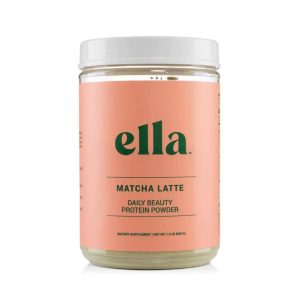

Key product features
What you should know
Naked Nutrition Matcha Latte Collagen Peptides contains ingredients meant to support skin health. In addition to matcha and collagen peptides, the protein powder hyaluronic acid, vitamin C, and biotin. (14, 15, 16, 17)
- The 20 grams of protein in the matcha powder comes from collagen, pumpkin seeds, and chia seeds, providing all of the essential amino acids so it’s a complete protein. (12, 18)
- At $2.00 a serving, Matcha Latte Collagen Peptides costs $1 more than the average market price for matcha powder, but it may replace other supplements you take for your skin.
- This may be a good matcha powder for active individuals looking for a supplement to support skin health and help them keep up with the demands of their hectic day.
Why we like Naked Nutrition Matcha Latte Collagen Peptides as best for skin
With collagen peptides, hyaluronic acid, vitamin C, and matcha, Naked Nutrition Matcha Latte Collagen Peptides has many of the nutrients that benefit the skin. The matcha is a bonus, providing 1.8 grams per serving, similar to the amount in more traditional matcha powders.
Collagen peptides are one of the key ingredients in Naked Nutrition’s matcha powder. Collagen is a structural protein that keeps the skin taut and resilient. (16) Loss of collagen as you get older contributes to the development of lines and wrinkles. (16) A 2023 review study published in Nutrients concluded that supplementing with collagen benefits skin aging by improving hydration and elasticity. (16) However, the evidence is based on small studies with varying methods, and more research is needed to better understand how collagen may benefit skin health and, how much is required for the potential benefit. (16)
Naked Nutrition Matcha Latte Collagen Peptides also has 100 milligrams of hyaluronic acid, a substance naturally found in the skin that locks in moisture. (15) A small study published in Skin Research & Technology found that supplementing with 100 mg of hyaluronic acid improved skin hydration, tone, and thickness in women ranging in ages 18 to 65. (15) Again, larger studies are needed before claims are made, though it is nice to see the dose used in the research study mentioned is the dose included in this particular product.
Vitamin C is also good for the skin, protecting against oxidative damage and supporting production of collagen. (14) Matcha Latte Collagen Peptides meets 100% of the daily value for vitamin C. The skin health protein powder also meets 100% of the daily value for biotin. Though a common vitamin in skin, hair, and nail supplements, there’s no evidence that supplementing with biotin improves skin health. (14)
Research suggests that the catechins, antioxidants, and phytochemicals in green tea may protect the skin from sun damage, so the matcha powder may offer benefits too. (17) However, this is based on experimental studies and may not have the same effects in people. (17)
Matcha Latte Collagen Peptides is a protein supplement, providing 20 grams per serving from collagen peptides, pumpkin seeds, and chia seeds, making it a high-quality protein with all the essential amino acids. (12, 18) It also has 100 calories, 3 grams of carbs, and 1.5 grams of fat in each serving.
The protein powder is sugar free and sweetened with fermented cane sugar (Reb-M) and also comes in vanilla and chocolate flavors. It’s also gluten-free and soy-free. However, it contains bovine collagen peptides and isn’t suitable for people following a vegan diet.
At $2.00 per serving, Naked Nutrition Matcha Latte Collagen Peptides costs more than the average market price for matcha powder. However, you can save 10% on your order by signing up for autoship deliveries every 2, 4, or 6 weeks.
One drawback is that the origin of the matcha powder is not disclosed, making it difficult to evaluate the quality of the matcha. And while many of Naked Nutrition’s products are third-party tested and even Informed Choice certified, it is unclear if the Matcha Latte Collagen Peptides are. Though all Naked Nutrition products are made in GMP certified facilities.
What customers are saying
Customers on Amazon like Naked Nutrition’s matcha and collagen peptides powder. They enjoy the taste and like the ingredients. However, some customers find the nutrition in the powder lacking and the texture gritty.
“Very good matcha, I like it with soy milk. Dissolves good and it’s a prefect breakfast protien drink.”
Jenny J., Amazon
Keith T., an Amazon Vine Customer selected to receive free items from Amazon to provide insightful and honest reviews, writes, ”Very pleasant, mild matcha flavor, slightly sweet. Great mixed with soy or almond milk, it blends well even cold.”
Robert J. is another Amazon Vine reviewer who loves matcha and likes the flavor of the Naked Nutrition collagen peptide powder, but not the texture. “Tried some because I love Matcha. This has good matcha flavor and it is not overpowering as some matcha flavored things can be. Where it fails me though is the texture. I drank it from my gym water bottle and shook it vigorously. There was no clumping (good), but there was a sandy texture.”
Specs
| Serving size | 2 scoops (30 grams) |
| Servings per container | 20 |
| Price per serving | $2.00 |
| Grade | N/A |
| Origin | N/A |
| Ingredients | Hydrolyzed bovine collagen peptides, organic pumpkin seed protein, organic chia seed protein, organic matcha green tea, hyaluronic acid, pink Himalayan salt, MCT powder, natural plant based flavors, fermented sugar cane (Reb-M) |
| Certifications | GMP certified |
Best organic matcha powder: Cymbiotika Organic Matcha Powder
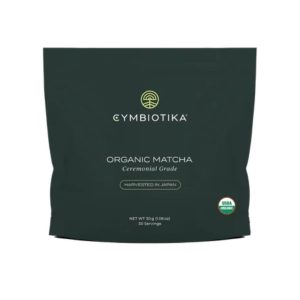

Key product features
What you should know
Cymbiotika Organic Matcha Powder is a true ceremonial-grade matcha made from the top leaves of the first harvest, creating a bright green powder with a fresh and slightly sweet flavor. (6) The single-ingredient tea is also certified USDA organic.
- The amount of caffeine in Cymbiotika Organic Matcha Powder isn’t listed, but the makers recommend consuming the tea in the morning.
- At $1.47 a serving, the organic matcha powder is a little higher than the average market price, but it’s a high-quality tea made from the premium young green tea leaves of the first harvest.
- This matcha may be a good choice for environmentally conscious morning matcha drinkers seeking a flavorful, high-quality tea for energy and focus.
Why we like Cymbiotika Organic Matcha Powder as best organic
Cymbiotika Organic Matcha Powder is a high-grade matcha hailing from organic farms in a region of Japan known for making the finest matcha tea. In addition to using sustainable growing practices, Cymbiotika’s matcha powder is ceremonial-grade, made from the first harvest and the youngest leaves.
Ceremonial-grade matcha powder is highly valued for its color, taste, and aroma. (6) The younger leaves produce a smooth, slightly sweet tea without bitterness, making it a highly enjoyable drink. (6) However, ceremonial-grade matcha may have lower amounts of catechins than premium grade. (19)
Cymbiotika mentions that the organic matcha has caffeine, but the amount isn’t provided. Caffeine is a stimulant that increases energy. However, consuming too much caffeine, more than 400 milligrams a day, increases risk of side effects like anxiety and difficulty sleeping. (20)
However, matcha powder also has L-theanine, an amino acid naturally found in green tea that may relieve stress, improve mood, and support sleep. (21) The high levels of L-theanine in matcha powder are responsible for its non-bitter taste. It also seems to balance out the effects of the caffeine, helping you feel alert and calm. (1)
Cymbiotika Organic Matcha is USDA certified organic and was grown and processed without use of pesticides or harsh chemicals. (22) The matcha powder is also gluten-free and vegan.
At $1.47 per serving, the organic matcha powder is priced about $0.50 more than average. However, it’s not as high as other matcha powders on our list and is made from the most valued green tea leaves.
Another concern we have with the organic matcha powder is that the matcha is packaged in a bag, instead of a tin like most other high-quality powders. Air-tight and opaque packaging helps maintain matcha powder’s quality and freshness.
What customers are saying
Customers purchasing the organic matcha powder on Amazon have mostly good things to say. Many customers enjoy the taste and quality of the tea, however some say it’s too bitter and expensive.
“Best matcha I’ve had. Love that it’s ceremonial grade and the true bright green color matcha should be. I’m fine with the cost now having tasted the quality, so I’ll be purchasing this again.”
Olivia, Amazon
Rebecca W. is an Amazon customer who also had positive things to say about Cymbiotika Organic Matcha Powder. “First time trying this matcha! It tastes amazing, and makes great matcha Frappuccino’s! Gives me a nice, clean, jitter free energy boost!”
Tiffiany S. is a disappointed Amazon shopper, writing, “Taste quality average, expensive for no good reason.”
Specs
| Serving size | 1/2 teaspoon (1 gram) |
| Servings per container | 30 |
| Price per serving | $1.47 |
| Grade | Ceremonial |
| Origin | Uji and Kagoshima, Japan |
| Ingredients | Matcha powder |
| Certifications | USDA organic |
Best Japanese matcha powder: Ippodo Ummon Matcha
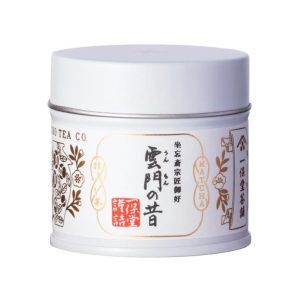

Key product features
What you should know
Ippodo Tea’s Ummon Matcha is a high-quality Japanese matcha powder with a robust and rich umami flavor perfect for making traditional matcha tea or lattes.
- Ippodo Tea has been making matcha powder for more than three centuries and is known for offering high-quality Japanese green teas.
- At $2.88 per serving, Ippodo Ummon Matcha is priced nearly $2 more than the average market price for matcha powder.
- Ippodo Ummon Matcha’s rich flavor and non-bitter taste makes it a good choice for people who want to try matcha but aren’t typical tea drinkers.
Why we like Ippodo Ummon Matcha as best Japanese matcha powder
Ippodo Ummon Matcha is the perfect example of a traditional, high-quality Japanese matcha powder. It’s bright green hue, energizing fragrance, and umami (earthy, grassy) flavor are the highly valued qualities in matcha that set it apart from all other teas. (2)
Japanese matcha powder is made from the first or second harvest leaves, marketed as ceremonial-grade, or the third or fourth harvest leaves, marketed as premium or culinary grade. (19) Green tea leaves from the first or second harvest make a high-quality matcha powder with a pleasant umami flavor and very little bitterness or astringency (dry mouth feeling). (2) By comparison, matcha powder made from the third or fourth harvest has a stronger flavor and more bitterness. (2)
Ippodo Ummon Matcha is a premium tea with flavors that closely resemble a ceremonial tea. Though the type of green tea leaves used to make matcha powder affect flavor and aroma, ceremonial and premium grade labels on commercial matcha powders are a marketing tool and may not truly reflect the quality of the powder. In general, ceremonial grade matcha powder is for tea ceremonies, while premium matcha powder is for daily use. (19)
From a nutrition standpoint, premium matcha powder may provide more value than the ceremonial grade. A 2020 study found that premium-grade matcha powder has higher levels of antioxidants than ceremonial-grade matcha, including the highly regarded catechins epigallocatechin gallate (EGCG), epigallocatechin (EGC), epicatechin gallate (ECG), and epicatechin, which are believed to have greater antioxidant power than vitamin C and glutathione. (1, 19)
Matcha also has higher amounts of caffeine than standard green tea—30 milligrams per gram versus 17 milligrams, respectively. (1) One gram of Ummon Matcha has 32 milligrams of caffeine.
Beyond its great taste, color, and quality, we also like Ippodo Ummon Matcha for its simplicity and versatility. It’s slightly sweet and has a silky texture, making it a good choice for teas and lattes.
Ummon Matcha is an authentic Japanese matcha powder that Ippodo Tea has been making for decades, and it’s one of their most popular matchas. But at $2.88 a serving, the highly regarded matcha is priced nearly three times more than the average for matcha. However, given its quality and history, it may be worth the price to get a pure matcha powder, keeping in mind that you need to use it within a month after opening. Though the shelf-life is short, at just a month after opening, this is normal for high-quality matcha powder to ensure freshness and quality.
Though not unusual for matcha, the makers of the tea recommend using a whisk when mixing the powder with water to make it frothy. So, beginners may need to purchase a “chasen,” a bamboo whisk for tea, to get the right and more authentic effect.
“Part of the allure and benefit to matcha, or really any tea, is the ceremonial process of pouring and sipping the beverage. A worldwide tradition, the connection with others, the process and the care that goes into it in and of itself can be a benefit” adds Mohr.
What customers are saying
Customers on Amazon have many good things to say about Ippodo Ummon Matcha powder. They like its rich flavor and mild sweetness. However, some consumers expressed disappointment with its clumpiness when mixed and the price.
“The Ippodo Tea Ummon – Rich Matcha, a luxurious indulgence that proves to be worth every penny. While matcha may come with a higher price tag, the quality and taste of this particular brand make it a truly remarkable experience.”
Ray, Amazon
Helen D. is another Amazon customer pleased with the Japanese matcha powder. ”What I like about this is the perfect flavor not too strong n not too weak.”
Most negative reivews for Ippodo Tea Ummon Matcha center around mixing. Aja’s Amazon review says, “It doesn’t matter how much I whisk it – this matcha is clumpy and honestly not worth the money in my opinion.”
Specs
| Serving size | 2 grams |
| Servings per container | 10 |
| Price per serving | $2.88 |
| Grade | Premium |
| Origin | Kyoto, Japan |
| Ingredients | Green tea |
| Certifications | None |
Best matcha powder for lattes: Chamberlain Coffee Matcha
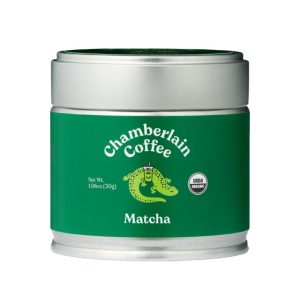

Key product features
What you should know
Chamberlain Coffee Matcha is a flavorful, ceremonial-grade Japanese green tea powder that’s subtly sweet with hints of umami and bitterness. Because of its slightly stronger flavor profile, Chamberlain Coffee Matcha works well mixed with milk for a matcha latte.
- Chamberlain Coffee Matcha is certified organic by the USDA and OCIA International by Japan Agricultural Standards (JAS).
- At $0.80 per 1/2 teaspoon serving, Chamberlain Coffee Matcha costs less than the average market price and is the lowest priced powder on our list.
- This is a good matcha powder for the eco-conscious consumer who’s always on-the-go and wants a fun and energizing matcha powder they mix into a latte and take with them.
- Chamberlain Coffee Matcha is also available in unsweetened chocolate and vanilla flavors.
Why we like Chamberlain Coffee Matcha as best for lattes
Chamberlain Coffee Matcha is a high-grade matcha powder at an affordable price, making it the perfect choice for lattes. Matcha lattes combine green tea powder with milk to create a creamy, earthy, and comforting drink.
Matcha lattes are popular drinks at many coffee and tea shops, but making it at home gives you more control over ingredients, flavor, and nutrition. We like Chamberlain Coffee Matcha for making lattes because of its flavor profile. Its subtle sweetness with hints of umami and bitterness gives the flavor more power, so it stands out when mixed with milk or other ingredients.
Chamberlain Coffee Matcha mixes well in hot and cold liquids, giving you more versatility in the type of latte you can make. When making a matcha latte, whisk the powder in 2 ounces of hot water before combining milk. Many matcha latte recipes suggest adding honey for sweetness, but you can use any sweetener you like or none at all.
The organic matcha powder also comes in chocolate and vanilla flavors to suit a wide range of tastes. The flavored matcha uses natural flavorings and has no sweeteners.
At $0.80 a serving, the high-quality matcha powder costs around $0.50 less than the average market price, making it an affordable brand to experiment with. However, the price is based on a small 1/2 teaspoon serving, so cost per serving may increase if you need more matcha flavor in your latte.
Chamberlain’s matcha powder is also on our list for best matcha tea because it’s USDA certified organic and certified organic by OCIA Japan. (23) We also like the matcha powder because it has one ingredient—organic Japanese matcha powder stone-ground from premium Japanese tencha leaves originating in Shizuoka, Japan. Tencha refers to the green tea leaves used to make matcha. (1)
Chamberlain Coffee Matcha is caffeinated, but the amount of caffeine isn’t provided. Like many matcha powders, you need a bamboo whisk to mix the powder in the liquid to make the tea frothy.
What customers are saying
Chamberlain Coffee Matcha is highly rated by Amazon customers. They like the quality of the tea and that you can drink it daily. Some consumers find the matcha powder expensive, and not everyone likes the taste.
“I was pleasantly surprised that this matcha is actually great. It’s organic and ceremonial grade, which means that it’s perfect for matcha lattes and is not bitter at all. For the price, the quantity is great, especially bc it’s organic. I will definitely be purchasing again. Highly recommend.”
Salma, Amazon
Tony, a verified Amazon buyer, was impressed with the color of Chamberlain’s matcha powder. “This matcha is amazing! It’s a beautiful green which is the first indication that it’s of good quality.”
Nicole is a verified Amazon buyer who took a chance with Chamberlain Coffee Matcha and was disappointed, writing, “For starters, it’s incredibly small for the amount that you pay. I mixed it with hot water using my matcha whisk, but it seemed pretty easy to blend. I used the recommended amount of water as stated on the jar, but it diluted the powder way too much. It ended up tasting incredibly watered down and took away from the overall taste.”
Specs
| Serving size | 1/2 teaspoon |
| Servings per container | 30 |
| Price per serving | $0.80 |
| Grade | Ceremonial |
| Origin | Shizuoka, Japan |
| Ingredients | Organic Japanese matcha powder |
| Certifications | USDA organic, certified organic by OCIA Japan |
Best mushroom matcha powder: Renude Chaga Matcha
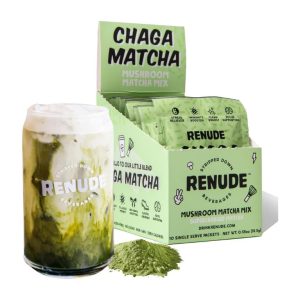

Key product features
What you should know
Renude Chaga Matcha is a nutrient-packed matcha powder marketed for immune support, stress management, and skin health.
- Renude Chaga Matcha comes in single-serving packets you can carry in your bag or stash desk and enjoy when you’re out and about.
- At $3.50 per packet, Renude Chaga Matcha costs more than three times the average market price for matcha powder.
- Wellness savvy consumers looking for a nutrient-dense drink that supports mental clarity, vitality, and overall health may want to try Renude Chaga Matcha.
- The matcha and mushroom powder contains ceremonial-grade matcha powder grown in Fukuoka, Japan.
Why we like Ka’Chava Matcha Why we like Renude Chaga Matcha as best mushroom-In-One Nutrition Shake as best for smoothies
If you’re debating between matcha or mushroom coffee as your new morning beverage, you may want to give Renude Chaga Matcha a try. The powdered drink combines matcha with chaga mushrooms to help improve nutrition and support wellness.
Many of the health benefits linked to matcha tea are attributed to the catechins, which are polyphenols with powerful antioxidant activity. (13) Preliminary data suggests matcha supports management of stress and anxiety and may improve memory and learning. (13) All other health benefits attributed to matcha powder, such as weight management and heart health, are based on results from animal studies and not applicable to people. (13) Though the health benefits are unclear, the antioxidants in matcha tea support overall nutritional health.
Chaga powder is a medicinal mushroom rich in bioactive compounds with antioxidant and anti-inflammatory properties. (24) Experimental studies suggest these compounds help support immune health, skin health, and energy. (24) However, more research is needed to better understand how the compounds work, the dosage needed and how they may benefit human health. (24) Right now, not enough is known to support any health claims related to chaga mushroom powder.
At $3.50 a serving, Renude Chaga Matcha is priced more than triple the average market price for matcha powder. That’s a hefty price for a supplement with health claims that lack evidence. Plus, the powdered mix uses a proprietary blend for the matcha and mushroom mix, making it difficult to evaluate safety and side effects.
Renude Chaga Matcha has no sugar and uses monk fruit and erythritol for sweetness. Erythritol is an artificial sweetener generally recognized as safe, but some research suggests it may contribute to cardiovascular problems. (25)
What customers are saying
Customers on Amazon like the mushroom matcha powder from Renude. They say it has a good flavor, is easy to make, and balances out their energy. However, not everyone likes the sweetness.
“Switched from coffee to Matcha and won’t look back. This is a subtly sweet, wonderfully light, flavored Matcha- hot or cold. I love the functional mushrooms and how it balances out your moods. A little bit higher in price, but it is well worth the investment in yourself.”
Username “CBajo,” Amazon
An Amazon shopper with the username “EGarza” likes the energy boost from the matcha and mushroom powder. “I am into my second month of using this supplement in the afternoon to help keep me energized. It is great. It tastes good and is easy to fix.”
John is an Amazon customer who finds the drink too sweet. “I like the concept, but when I make lattes I add oat milk which is already sweet enough.”
Specs
| Serving size | 1 packet |
| Servings per container | 10 |
| Price per serving | $3.50 |
| Grade | Ceremonial |
| Origin | Fukuoka, Japan |
| Ingredients | Matcha, wild foraged chaga, Peruvian cacao, ceylon cinnamon, monk fruit sweetener, erythritol |
| Certifications | None |
Best sweetened matcha powder: Jade Leaf Cafe Style Sweetened Matcha Latte Powder
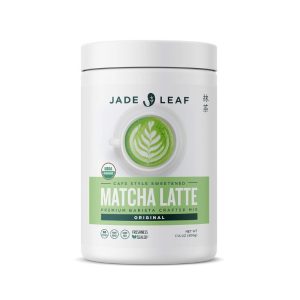

Key product features
What you should know
Jade Leaf Cafe Style Sweetened Matcha Latte Powder has only two ingredients: organic Japanese matcha green tea powder and organic unrefined cane sugar. It’s matcha tea with a touch of sweetness.
- The sweetened matcha powder has 9 grams of added sugar—a bit high, meeting 18% of the daily value.
- At $0.60 a serving, Jade Leaf Cafe Style Sweetened Matcha Latte Powder is priced about $0.40 less than the average market price for matcha powder.
- If coffee shop matcha lattes are breaking your fun-money budget, Jade Leaf’s sweetened matcha powder is a delicious way to enjoy the same flavorful experience at home without breaking the bank.
- The manufacturer of the sweetened matcha says it’s best consumed within two months after opening, so you may need to drink a latte every day so you don’t waste it.
Why we like Jade Leaf Cafe Style Sweetened Matcha Latte Powder as best sweetened
We like Jade Leaf Cafe Style Sweetened Matcha Latte Powder for its simplicity. With only two ingredients—organic Japanese matcha green tea powder and organic unrefined cane sugar—Jade Leaf’s sweetened latte powder allows the flavor of the matcha tea to shine through. It’s a high quality matcha tea with a touch of sweetness.
It’s also USDA certified organic and contains matcha powder sourced from Uji and Kagoshima, Japan. The fine powder mixes well in hot and cold liquids, with or without a bamboo whisk. However, you may need a whisk or frother if you want the cafe-style foam finish.
The sweetened matcha latte powder has 9 grams of added sugar, meeting 18% of the daily value. Sugary drinks are a common source of added sugar in the American diet, and excess sugar intake may contribute to health problems like obesity and heart disease, with an excess of calories. (26) The dietary guidelines recommend limiting added sugar to less than 10% of calories, or no more than 50 grams a day on a 2,000-calorie diet. (26)
“Even though this product contains added sugar, it could be a great alternative to other beverages with high levels of added sugar,” says Mohr. On the flipside, if it’s simply added to a diet that’s already high in added sugar, it can add up quickly.”
The makers of Jade Leaf Cafe Style Sweetened Matcha Latte Powder recommend consuming the powder within two months of opening for quality. With 50 servings per container, you need to drink a latte almost daily to reduce waste.
Between the sugar and limited shelf-life, your sweetened matcha latte may turn into a daily treat. Using cow’s milk or a plant-milk with added calcium may improve the nutritional quality of your drink and help you get more of the bone-building nutrient in your diet. (27)
The sweetened matcha latte powder has 20 to 30 milligrams of caffeine, a little less than a cup of brewed green tea, which has about 30 to 50 milligrams. (20)
At $0.60 a serving, Jade Leaf Style Cafe Sweetened Matcha Latte Powder costs less than the average market price for matcha powder. If you want to try quality matcha without breaking the bank or you need to curb your coffee shop spending, the sweetened matcha latte powder is a good option.
What customers are saying
More than 29,000 Amazon customers have reviewed Jade Leaf Cafe Style Sweetened Matcha Latte Powder. The majority of customers have only positive things to say, remarking about the taste and quality of the matcha powder and how easy it is to make lattes. However, some customers have concerns about the sugar content and cost.
Verified Amazon shopper Jazmine says the sweetened matcha powder makes the perfect latte. “It tastes great and is a good value for how much you get.”
Build callout: “I was getting tired of buying $6 matcha lattes from the store, and so I did some experiments with different brands. This is the one that tastes the most like a store-bought matcha latte. Flavorful, just sweet enough, but not too sweet, best if mixed moderately with milk (in my opinion). I drink it every day and save myself a load of money.” John, Amazon,
Though many customers like the sweetened matcha powder, some said it was too sweet. Amazon reviewer Maleah writes, “Definitely won’t buy the sweetened flavor again but it is worth the purchase if you like it on the sweeter side.”
Specs
| Serving size | 1 scoop or 2 teaspoons |
| Servings per container | 50 |
| Price per serving | $0.60 |
| Grade | N/A |
| Origin | Kagoshima and Uji, Japan |
| Ingredients | Organic Japanese matcha green tea, organic unrefined cane sugar |
| Certifications | USDA organic |
Best tasting matcha powder: Kettl Matcha
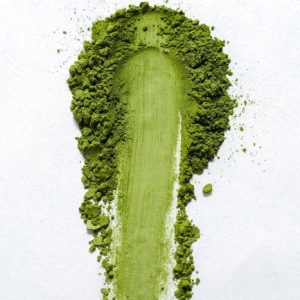

Key product features
What you should know
Kettl Matcha has a matcha powder to suit any taste, whether you’re a novice looking for a tea with great flavor or a regular consumer who wants to take their matcha drinking to the next level.
- Kettl Matcha doesn’t grade their matcha powders, but offers detailed information about each product, including use, taste, and origin
- With prices ranging from $1.05 to $3.25 per serving, Kettle Matcha powders fit a wide range of budgets.
- This is good matcha powder for daily matcha drinkers who want to expand their palate and try some of the highest quality teas available.
- Kettl Matcha works with Japanese green tea growers from all over Japan, bringing the best Japanese matchas to people all over the world.
Why we like Kettle Matcha as best tasting
Kettl Matcha connects high-quality Japanese matcha tea with matcha drinkers all over the world. They carry fresh and local matcha powders typically only available to consumers in Japan, bringing the best tasting, most authentic matcha tea to you.
Kettl has dozens of matcha powders, ranging from $1.05 to $3.25 a serving, offering teas at or above average market price. If you want an authentic matcha powder that won’t break the bank, Kettl may have what you’re looking for. They also have high-grade matcha powders for the serious matcha drinkers.
If matcha tea is part of your regular routine, you can save 10% with a Kettl subscription, getting regular deliveries every 1-8 weeks.
Each matcha powder from Kettl includes a detailed description of the origin and growing process of the green tea leaves, as well as taste, aroma, and preparation instructions. The description can help you find a matcha powder to suit your taste and desired use. However, with so many choices, you may find it overwhelming.
Kettl doesn’t use marketing terms like ceremonial-grade to classify their matcha powders. Instead, they classify by use. Matcha for whisking is a high-grade matcha powder equivalent to ceremonial grade, made from hand-picked leaves. Matcha for blending with milk is a traditional matcha powder that works well with milk or water. Kettl’s matcha for kneading is a highly regarded powder made from leaves with a longer shaded growing time, leading to higher levels of chlorophyll and L-theanine, and deeper colors and flavors. (19)
Kettl matcha powders have caffeine, however the amount is unknown, making it difficult to evaluate safety and side effects. Drinking matcha tea earlier in the day and limiting your intake of other caffeinated drinks may prevent excessive caffeine intake and disruptions in sleep.
Matcha powder from Kettl is fresh and best consumed within a month after opening. Kettl uses oxygen-free packaging to maintain freshness during shipping and before opening.
Specs
| Serving size | 1.5 teaspoons (2 grams) |
| Servings per container | Depends on the product |
| Price per serving | $1.05-$3.25 |
| Grade | N/A |
| Origin | Uji,Yame, Gokasho, Kyoto, and Fukuoka, Japan |
| Ingredients | Japanese matcha powder |
| Certifications | None |
How we test supplements
We want to make well-informed decisions when shopping for supplements, like those made with matcha powder. Every product we recommend undergoes a thorough evaluation and testing process, taking multiple factors into consideration, such as effectiveness, safety, price, and customer experience, to formulate a rating. Our approach ensures we provide honest and impartial reviews you can trust.
Check out our supplements testing methodology page for a more detailed description of our process.
Efficacy—40%
The effectiveness of a supplement is key to ensuring consumers get the results expected. That’s why efficacy is the most weighted factor in our evaluation process. We want to make sure the supplement delivers on its promises, comparing claims and ingredients with scientific evidence.
Here’s what we look for:
- Clinical evidence
- Calories per serving
- Dose efficacy
- Synergistic effects
- Proprietary blends
Safety and side effects—35%
Safety and side effects are also important factors to consider when selecting a supplement. We carefully examine all potential health risks and adverse effects associated with the ingredients and formulations of the supplements we select.
We evaluate:
- Reported side effects
- Third-party testing
- Manufacturer accreditation
- Artificial sweeteners
Value—20%
Value isn’t about finding the cheapest supplement, but finding one that provides the best return on investment. For this category, we look at a supplement’s price, as well as its effectiveness, quality, and customer satisfaction.
Our factors in this rating include:
- Price per serving
Customer experience—5%
A consumer’s experience with a supplement or company influences their satisfaction, loyalty, and the likelihood of buying again. The customer experience influences purchasing decisions, which is why it’s part of our evaluation process.
Our factors in this rating include:
- Ease of purchase
- Shipping and returns
- Customer support
What to look for in a matcha powder
Matcha powder is made from fresh Japanese green tea leaves, and regarded as the highest quality tea. (1, 2) Traditional Japanese green tea grows under bamboo mats, protecting the leaves from direct sunlight for most of the growing period. (1)
Shading the tree while it grows increases levels of amino acids, L-theanine, and chlorophyll in the plant and tea. (1) The fresh leaves are harvested and ground into a fine powder, known as matcha powder. (2) The growing and processing gives matcha tea its bright green color, fragrant aroma, and non-bitter taste. (13)
Growing, processing, and origin affects the quality, color, and taste of matcha tea, and you should look for a vibrant green colored powder that smells like fresh cut grass. (13, 6)
Thing to consider when looking for a matcha powder include:
Grade
Matcha powders may use terms like premium, ceremonial, or culinary on the label. Though there are no set standards for grading or terminology of matcha powder, these terms may provide some indication of quality. (19)
Ceremonial-grade matcha should be the highest quality, made from the first or second harvest of green tea leaves. (19) Premium-grade and culinary-grade matcha powder is made from third or fourth harvest leaves. (19)
Ceremonial-grade matcha powders have higher levels of amino acids and chlorophyll and a slightly sweet, umami flavor without bitterness. (2, 19) Premium- and culinary-grade matcha teas have higher levels of catechins and caffeine, making them slightly bitter and more astringent (dry mouth feel) than the ceremonial-grade. (2, 19)
Higher grade matcha powders usually come at a higher price.
Color
Look for a bright green matcha powder for best quality. The vibrant green color is what sets matcha powder apart from traditional green tea, and a sign it has high levels of chlorophyll. (28) Matcha powder that’s a dull or dark green indicates it wasn’t grown, processed, or stored properly, or is expired. (28)
Smell and taste
A quality matcha powder has a grassy and earthy scent with a hint of sweetness. (28) Matcha tea has a distinct fresh and robust taste with varying levels of sweetness and bitterness. Look for a matcha powder that has a flavor profile that suits your taste.
Other ingredients
Though many matcha powders contain only matcha, some may contain added ingredients like sweeteners, flavors, or other additives. Matcha powder is also a popular ingredient in supplements like collagen peptides and protein powders. Read the ingredients list to find the matcha powder that best suits your needs.
How to store matcha
Store your matcha powder as instructed by the manufacturer. However, refrigerating your matcha powder in an air-tight and light-proof container in the refrigerator preserves quality and antioxidant content for up to two months. (29)
How to use matcha powder
Traditionally, matcha powder is whisked with hot water until frothy and consumed as tea. But thanks to its growing popularity, people have come up with many uses for the bright green tea powder, like matcha lattes and smoothies. You can also add matcha powder to oatmeal, yogurt, soup, smoothies, muffin batter, or even salad dressing.
FAQs
What is the best grade of matcha?
Ceremonial matcha powder is considered the best grade. This type of matcha powder is made from the first harvest of leaves and has a subtle flavor and no bitterness. (19) However, there are no set guidelines on how to grade matcha powder, and terms like ceremonial, premium, and culinary are for marketing and not standarized. (13)
How can you tell a matcha powder is high quality?
Is it safe to drink matcha every day?
It’s safe to drink matcha every day. The green tea powder is rich in bioactive compounds that support health, like catechins. (13) With caffeine and L-theanine, matcha tea is a good morning beverage that helps you feel more awake, alert, and focused, though like any caffeinated product, it should not be enjoyed closer to bedtime, as caffeine interrupts sleep quality. (21)
Is matcha anti-inflammatory?
Does matcha make you gassy?
There’s no direct evidence that matcha makes you gassy. However, individual tolerance varies and some people may experience side effects like gas after consuming matcha powder, especially if it contains other ingredients. Matcha is a source of caffeine and may cause an upset stomach if you consume too much. (20)
These statements have not been evaluated by the Food and Drug Administration. These products are not intended to diagnose, treat, cure, or prevent any diseases.
Our experts
Victoria Burgess, Ph.D., CSCS, CISSN
Victoria Burgess earned her Ph.D. in Health and Human Performance from Concordia University Chicago and holds her NSCA CSCS and Certified Sports Nutritionist (CISSN). She is an adjunct professor in the Human Performance and Nutrition department at Concordia University Chicago & Parker University, where she teaches undergraduate, graduate, and doctoral-level courses.
Christopher Mohr, Ph.D., RD
Dr. Chris Mohr is an internationally recognized subject matter expert and speaker and performance coach. Through his facilitation and online resources, he works closely with some of the largest corporations in the world including Deloitte, Delta Airlines, Johnson & Johnson and more to help busy executives all over the world, develop the energy to thrive personally and professionally.
Jessica Coulon
Jessica is a contributing editor and writer for Fortune Recommends who specializes in fitness, health, nutrition, and science content. Previously, she was an editor for Popular Mechanics and Bicycling, where she covered pro cycling news, wrote how-to guides, and tested all the latest and greatest bike gear. She was also a regular shoe tester and contributor for Runner’s World. You can often find her skiing or riding her mountain bike, and racing with the F1RE female enduro team.
Joana Neziri, M.S., NASM CPT
Joana is a writer, editor, and content strategist focusing on nutrition, fitness, and all things health. After earning a master’s degree in business from the University of North Florida, she began a career in research and digital marketing.
Kelly Uhler
Kelly has a multifaceted background in elder care, health care, and copywriting. She has worked for organizations such as A Place For Mom and Homecare.com, which gave her the opportunity to work closely with families, providing reliable information to help them make informed decisions about their loved one’s health, safety, and quality of life.

Jill Corleone
Registered Dietitian and Health Writer
About Author
Jill’s life has centered around nutrition and fitness for more than two decades. After earning her bachelor of science in nutrition at New York University in Manhattan, Jill went on to complete her internship at the University of Medicine and Dentistry of New Jersey in Newark.
She spent the early part of her career working as a clinical dietitian with a focus on pediatric nutrition. She then transitioned into management. Jill began her career as a freelance writer in 2007 while working as a clinical nutrition manager in Florida. She became a full-time writer in 2010 after the birth of her first child.
Jill has written for numerous publications, including Verywellfit, Diabetes Self-Management, Huffington Post, Livestrong.com, and SFGate.
